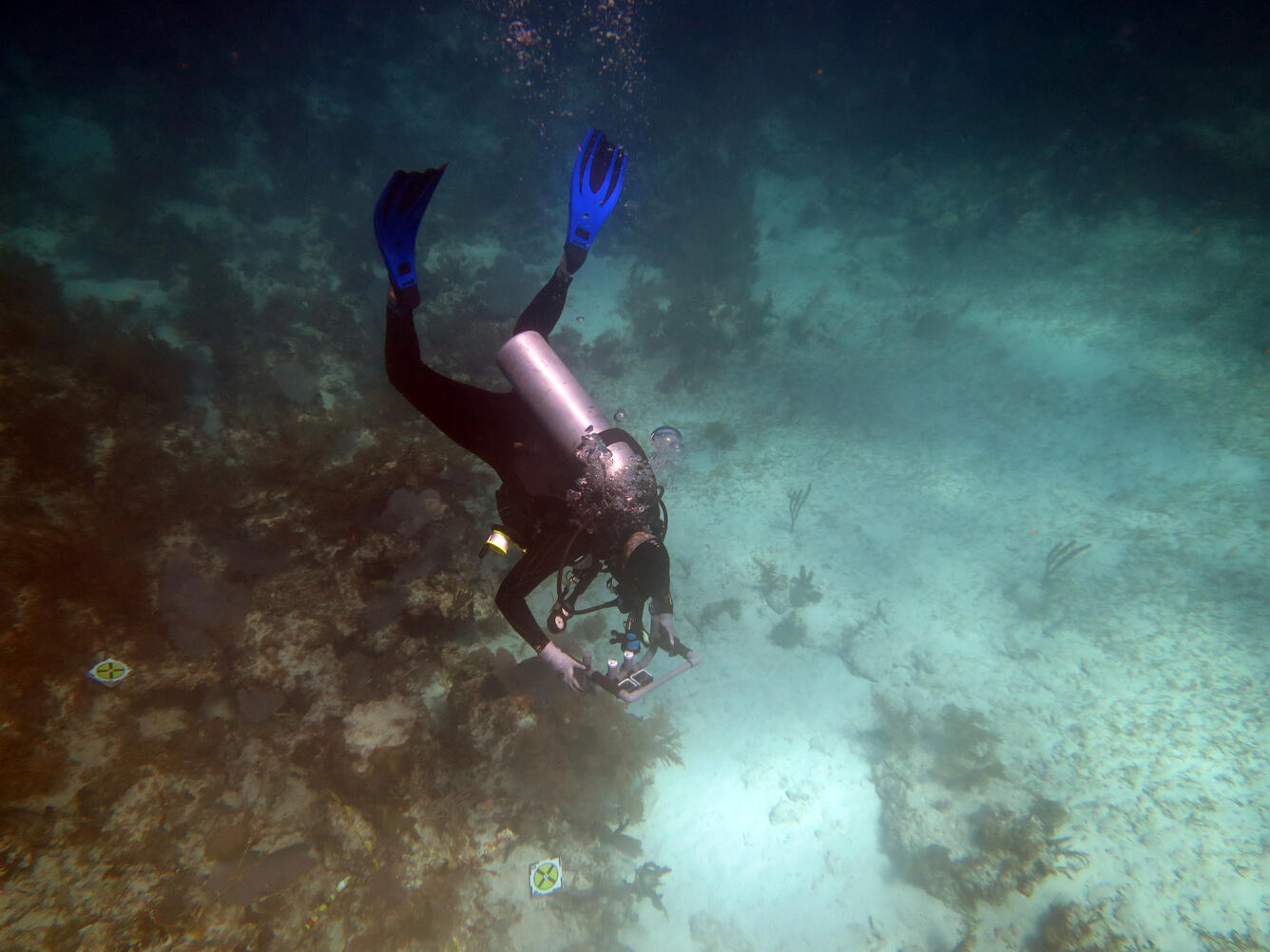Coral-reef research featured in Science Magazine news article
A news feature published last week in Science Magazine highlights research by SPCMSC scientists into the problem of reef erosion in the Florida Keys.
The geologic structures built by coral reefs over thousands of years serve as the foundation for a variety of critical ecosystem services including providing habitat that supports marine diversity and fisheries and buffering waves during storms. Unfortunately, the global decline in coral-reef health is threating the persistence of reefs and the ecosystem services they provide. A series of recent studies by SPCMSC scientists Lauren Toth (Research Oceanographer), Ilsa Kuffner (Research Marine Biologist), Kim Yates (Research Oceanographer), and Anastasios Stathakopoulos (Oceanographer) have shown that the growth (or “accretion”) of coral reefs in the Florida Keys has been negligible for at least 3000 years (Toth et al. 2018) and that Florida’s reefs are now eroding away (Kuffner et al. 2019) and losing elevation (Yates et al. 2017) at an alarming rate. The Science news feature highlights the results of these studies as well as ongoing efforts by SPCMSC researchers to determine the drivers and rates of reef erosion throughout the Florida reef tract.
The article can be found at https://www.sciencemag.org/news/2019/04/scientists-track-florida-s-vanishing-barrier-reef.
Get Our News
These items are in the RSS feed format (Really Simple Syndication) based on categories such as topics, locations, and more. You can install and RSS reader browser extension, software, or use a third-party service to receive immediate news updates depending on the feed that you have added. If you click the feed links below, they may look strange because they are simply XML code. An RSS reader can easily read this code and push out a notification to you when something new is posted to our site.



